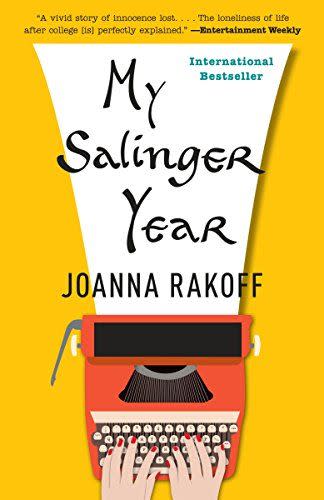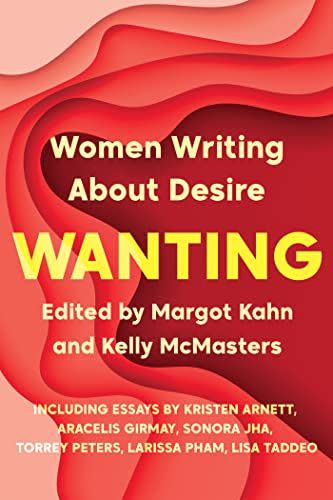The Moment I Knew the Man I Truly Loved Wasn’t My Husband

"Hearst Magazines and Yahoo may earn commission or revenue on some items through these links."

One night, not so very long ago, I walked into a bar and found, as if he had been placed there just for me, the most handsome man in the world. He sat on a low couch, surrounded by women, not in the style of a cinematic playboy holding court over his admirers, but in the manner of a very different sort of handsome man: the man whose attraction lies in his absolute inner peace, his ego’s egglike self-sufficiency. This man did not need the attention of the women surrounding him and, thus, he possessed it completely.
But in truth, I barely noticed the women. All I could see was him. His slender legs bent upward in a V, too long for the trendily low sofa; his mouth, which was full, turned upward, just slightly, in a smile. What did he look like? Does it matter? I suppose it does. A stranger might have presumed him foreign—Italian, perhaps, or Spanish, or from some unspecified corner of South Asia or the Middle East—due as much to his close-cut, dark, elegant garments as his olive skin and hooded eyes and curling black hair, rapidly fading to white at the temples. And his hands. His fingers. Long, elegant. He held a glass of clear liquid that I suspected—no, I knew—to be pure water. Water unadulterated even with ice.
I spotted him, at first, out of the corner of my eye, as I walked from the entrance of the bar to its rear, looking for the friend I’d planned to meet for a drink before heading out to a party. I wore a new dress, two layers of black silk, high-necked, long-sleeved, cut close through the shoulders and waist, a dress I’d bought for this party at which I’d see friends from all over the country, friends I loved and missed, friends who formed the emotional scaffolding of my life. But now, in the face of this man, the importance of the party, the dress, my friends, fell away. The entire world fell away. Except for him.
For a moment, I stared at him, my hands shaking, heart hammering. Icy water soaked through my boots, stiffening my feet with cold, but the rest of my body swelled uncomfortably with heat. Under my arms, my silk dress clung damp with sweat. For a moment, the room spun and I braced myself on a nearby sofa. I had, I realized, been holding my breath for a murderous amount of time.
When I turned my face back toward the man—now laughing at something uttered by the woman to his left, his face glowing with delight—I also realized there was a word what was transpiring in my body: desire.
***
The bar, I should explain, comprised the lower lobby of a large hotel in downtown Boston, adjacent to a sprawling convention center. Fourteen thousand writers had converged for an annual conference, despite the terrible storm sending wind across Boylston Street in painful, swirling gusts and crusting the pavement with ice. Across the street, in another large hotel, my children sat with their father in a dim, anonymous room, propped against a plush headboard, eating room service chicken fingers and watching an animated movie.
That afternoon, my husband and I had taken turns registering for the conference and looking after the children. For this was how we lived our life: separately. I had, over the course of our marriage, contemplated a life apart. For years, it was all I contemplated. The day after our wedding, I called my mother, in tears, and whispered, “I’ve made a mistake.” She sighed, as if she had expected this call, and said, “Well, you’ve made your bed. Now you have to lie in it.”
Fifteen years later, as my children changed into their soft pajamas, I swiped on mascara and lip gloss, and slipped my new dress over my head, reaching around awkwardly to pull the zipper from my spine to my neck, for I did not, not ever, ask my husband for help with anything, and certainly not something as intimate as zipping up a dress. Quickly, I kissed my children goodbye, filled for a moment with an intense, animalistic desire to sink into bed with them, to fall asleep with their warm faces buried in my neck.
Instead, I pressed on through the deserted, overbright lobby, leaned forcefully onto the glass door made heavier by the wind, and carefully made my may across the street, slipping and sliding in my kidskin boots, sleet burning my cheeks. Suddenly, I felt almost giddy—elated—with excitement. I was alone. Obligated to take care of no one but myself for the evening. Soon to be in the company of friends. These annual visits bolstered me for the entire year that followed. At the second hotel, a gust of wind propelled the door open, thrusting me into the warm lobby, dimly lit and lined with low sofas.
On one of which, of course, sat him.
For a moment, sick with shock, I turned back toward the door, toward my children; it was not too late. I could race back across the street and sink into sleep with their heads on my shoulders. My life was not a terrible one. I had learned, by willing myself to learn, how to comfortably lie in the bed I’d made.
Instead, I turned my eyes back toward the handsome man. And as I did so, he turned his eyes from his rapt companions and toward me. For a moment he stared at me, his mouth open, his eyes astonished. Then he shook his head, as if clearing the remnants of a bad dream, and in a clear, deep voice—a voice choked with emotion—called out my name.
***
Twenty-three years earlier, I’d hugged my parents goodbye, stepped into the hallway of my freshman dorm, and found a boy walking toward me. Tall, long-limbed, so thin his jeans hung precariously on his frame. His loose T-shirt bore no band name, no team logo, no political slogan, no signifier of how he defined himself.
“Hi,” he said. His hair, a depthless black, lay close to his head, but I could see that it was as curly as mine, that it would grow wild and enormous if not tightly shorn. A beard lined his wide jaw, and round wire-rimmed glasses—this being 1990—covered his eyes, large and dark, with heavy eyelids that gave him a sleepy, bemused affect.
“Hi,” I responded, in a voice I did not recognize, for something was shifting, violently, inside me, as if I were letting out a breath I’d been holding my whole life. I wanted to rest my head on his chest and close my eyes. I wanted to bury my face in his neck. I wanted to sit down and listen to him talk forever.
It would be years, decades, before I realized that there is a name for this phenomenon: love at first sight.
***
His name was Keeril, derived not from the common Russian name Kiril but from the appellations of his parents, who took three letters from each—Renee and Frank—to form a new one. Its singularity seemed, somehow, a metonym for Keeril himself. For there was, it seemed, no one even remotely like him in the world.
He was a composer. This was how he introduced himself, as if it were perfectly normal for 18-year-olds to already possess a vocation. And from that moment, we became fast friends, a mirthful unit during the absurd icebreakers of orientation. Over the years that followed, I called him, to anyone who asked, “one of my best friends,” though we largely saw each other when our paths crossed in the mailroom or the quad or a dining hall. Each time, it felt like we were picking up a conversation we’d left off five minutes before, as if our whole friendship were one long-running, endless discussion.
***
Our final year, I ran into him hours after returning to campus. The joy I felt on seeing his face felt akin to nothing I’d experienced in my life so far.
“What are you doing now?” he asked.
“Heading into town to buy a new bike,” I said.
“The old tenants left a bike in my house,” he responded. “It should fit you.”
In his room, I said, “I missed you,” my voice breaking, and he put his arms around me, after all those years, and kissed me, and the world suddenly shifted into perspective, as if everything that came before this moment had been a mere blur. This, I realized, was what a kiss was supposed to feel like. This was why people liked kissing. But also—decades later, this is still hard for me to say—I wanted him, in a way I had never, not ever, wanted anyone before. Every encounter that preceded it had stemmed from some boy’s desire for me, rather than mine for him. I’d felt, purely, grateful to be wanted. My own desire had never even factored into the equation.
***
After graduation, I moved to London for grad school. I, too, now had a vocation: writing. I suppose I’d had it all along—I’d published my first poems in second grade—but had been too afraid to admit it. Keeril stayed on campus, completing his classes, and applying to doctoral programs. In January, he would join me.
Though I believed myself to be having a grand time—seeing plays, laughing in pubs with classmates, wandering through the Tate alone—when Keeril showed up on the doorstep of my shabby student house, I collapsed into his arms, sobbing. Together, we moved to a lovely apartment, taught ourselves to cook, saw operas at Covent Garden, and spent hours gazing at Sargents in the National Gallery. We were happy. Deliriously so.

My Salinger Year
amazon.com
But there was one catch: I could no longer write. The deadlines for my seminar papers came and went as I stared at the ornate moldings on our ceiling. I had also, more troublingly, lost all desire to compose poems and stories or even scrawl in the journal I’d kept since first grade. I couldn’t think, either. In the fall, I had bubbled over with ideas. Now I sat in silence, listening to my classmates argue. My mind no longer seemed my own.
In March, Keeril got into Berkeley, the premiere program in his field. This was not a surprise. There had been no question that he would get in, and now there was no question that I would join him. He did not ask me to come. He simply presumed I would.
As did I.
In June, I sobbed, again, when he went back to the States to find us an apartment in California, clinging to him as he stepped into his taxi. But a day or two later, something happened: I resumed writing. My overdue papers, my master’s thesis, came easily to me. I filled my journal with thoughts and ideas and observations. As I walked around Hampstead, stories unfurled in my head, and I raced home to type them up with cinematic urgency.
Why couldn’t I write, why couldn’t I think, when I was with Keeril? What did this mean about him? Or about me?
Or about us together?
***
I did not go to Berkeley. I went home. To New York. At first, I told Keeril—and myself—that I would be there soon. But I found reason after reason to delay: I’d gotten a job as a PA on a Barbra Streisand film! My friend Deborah was getting married! My parents needed help around the house!
Somehow, a year passed. Then another. Somehow, I had a boyfriend. Then another. From opposite coasts, Keeril and I wrote to each other, first on paper, then email, about his frustrations with academia and the rarefied world of classical music, and my job in publishing and the column I began writing for a magazine. At night, sometimes, I came home from a party, or a date, and sat down at my desk, hoping to find a note from him, longing for his singular take on the world. I missed him, dreadfully; missed him in all ways. Sometimes, as I lay in bed at night, I found myself quivering with longing for him, burning for his touch, for the sound of his voice in my ear, the specific warmth of his head resting on mine, his arms around me.
Why did I not return to him? Why did I not, like a Nora Ephron heroine, race to the airport, buy a ticket at the counter, fly out to Berkeley, and show up at his door?
At the time, I believed that I had lost him—that I had hurt him so badly, he could never forgive me. I believed, too, that this—my abandonment of Keeril—was the greatest mistake of my life, a tragic error for which I needed to suffer for the rest of mine. But I know, now, that I feared my love for him occluded every other want and need in my life. I feared that if I returned to him, I would be defined, forever, purely as his wife, the helpmeet to a genius.
And so I married someone else, a man I barely knew. Perhaps because he—a would-be poet himself—saw me, first and foremost, as a writer, and a talented one. I could envision a life with him, with my work at its center, a life in which I woke up and wrote, and fell asleep with my head on the page, my hand gripping the pen. Perhaps because I didn’t love him in that all-encompassing way, there was no danger of losing myself.
***
Years passed. A decade. Keeril won fellowships and awards and commissions that took him all over the world. I stayed in New York and wrote and wrote, struggling to lie in the bed I’d made, intent—for reasons that now elude me—on presenting my marriage, myself, to friends, to the world, as perfect, as normal, as happy. Keeril married, too, and moved to Paris, then Illinois, then Boston to teach.
Sometimes, he’d come to New York for a commission or a performance and we’d see each other every day, taking long walks through Central Park, eating long lunches at quiet restaurants, my body slowly igniting.
Sometimes, on the bench of a subway car or seated next to each other on a friend’s couch, I let my head rest on his shoulder, overcome with longing.
Sometimes, he read an essay of mine in the Times and called, overcome—I see now—with longing.
Sometimes, we went months, years, without speaking to each other, terrified of the feelings that would arise at the sound of the other’s voice.
Sometimes, we spent hours on the phone, day after day, talking about everything, every single thing in our lives, a practice that alarmed and enraged our spouses. They knew we were not having an affair, virtual or otherwise. But the truth, I suppose, was more frightening.
One cold afternoon, just before Thanksgiving, in 2010, we lingered over lunch for hours, then walked and walked around the West Village.
“I think we shouldn’t be in each other’s lives anymore,” he said, sadness lending his voice an odd formality. “It’s just too sad. I want to be with you, but I don’t want to have an affair with you, and I don’t want to destroy your family.” I nodded, unable to speak, for I knew if I opened my mouth, no comprehensible words would emerge, simply cries of rage and frustration.
***
Two years later, I walked into a bar in Boston—never guessing that a few months later this would be my home—and found myself in front of the most handsome, most attractive man I’d ever seen. Every night since we’d parted, I’d dreamed of him, his long body next to mine. And yet, for an instant, I still thought him a stranger, the most handsome stranger in the world.
Across that room, he saw me and stood up, shaking his head in disbelief. “Jo,” he called, in his low, quiet voice. It occurs to me, only now, that I could not have heard him, as the bar thrummed with voices and music and the clanking of glasses, but that I merely saw his lips move in the shape of my name. And I found the courage to move toward him, rather than run away, run back to my children and husband, until, as in my dream, I was in his arms. The world, as it had 20 years earlier, fell away.
“How are you?” he asked.
How was I?
I truly did not know. I thought of my children snuggled together under the heavy duvet, and the afternoons we spent wandering through museums or turning cartwheels in the park. I thought, for a moment, of my tiny office and the happy hours I spent there, lost in the worlds of my characters or teasing out the thread of an argument. I thought, too, of the panel on which I was scheduled to appear the next day, which had seemed exciting and important an hour earlier and now struck me as absurd and trivial and devoid of meaning in the face of Keeril, as did everything, everything. I wanted to take his hand and go wherever he took me.
“How are you?” I asked, and watched his full mouth grow slack with pain.
“I’m not good, Jo,” he said. “I can live without you. But I can’t be happy without you.”
I don’t need to explain, I suppose, that the same was true for me.
Excerpted from Wanting: Women Writing About Desire (Catapult)
Joanna Rakoff is the author of the international bestselling memoir My Salinger Year and the bestselling novel A Fortunate Age, winner of the Goldberg Prize for Fiction and the Elle Readers’ Prize. Her writing has appeared in the anthology Wanting: Women Writing About Desire, The New York Times, The Guardian, O: The Oprah Magazine, Vogue, Elle, Porter, and elsewhere, and her new memoir, The Fifth Passenger, is forthcoming from Little, Brown in 2024.

Wanting: Women Writing About Desire
amazon.com
You Might Also Like

